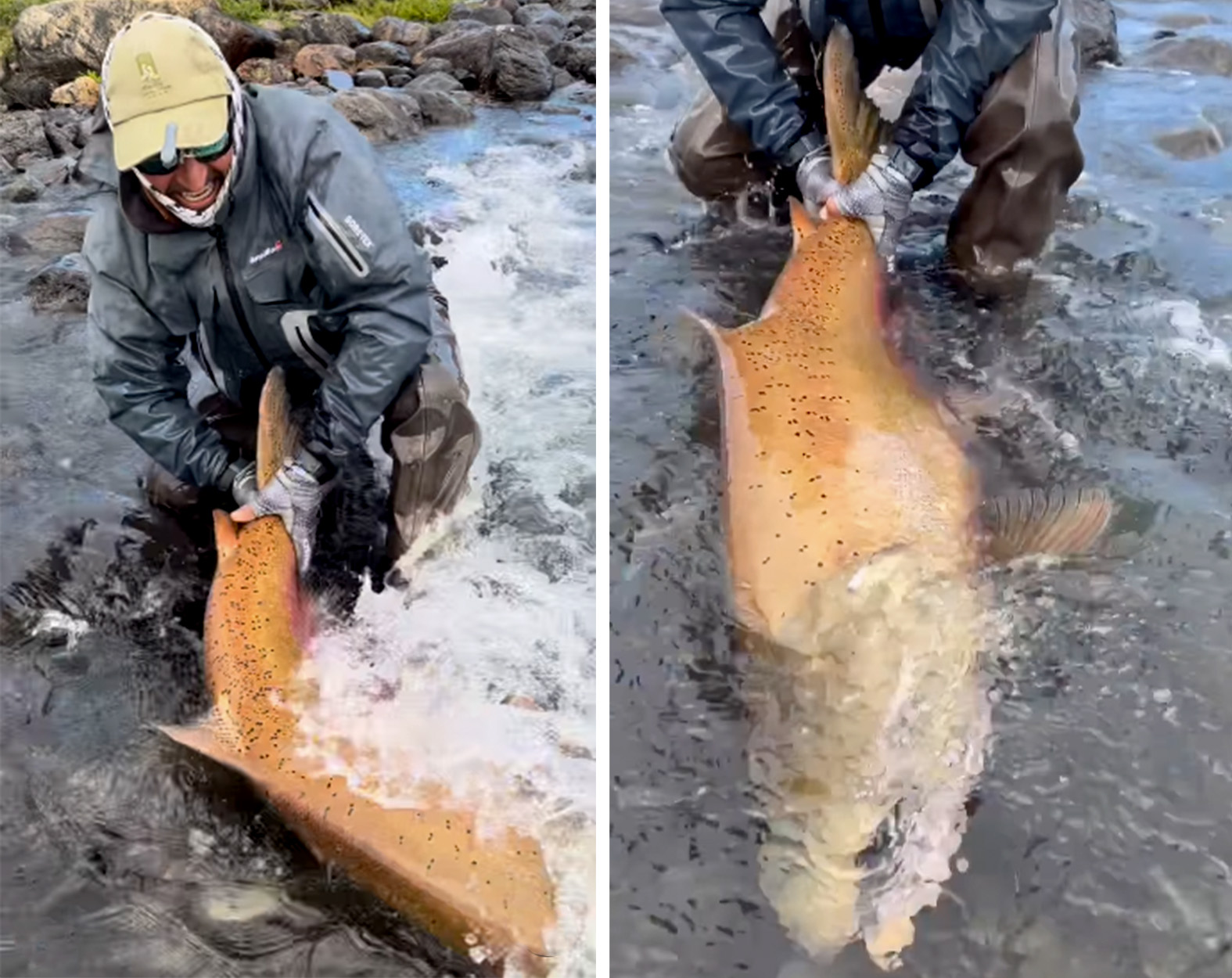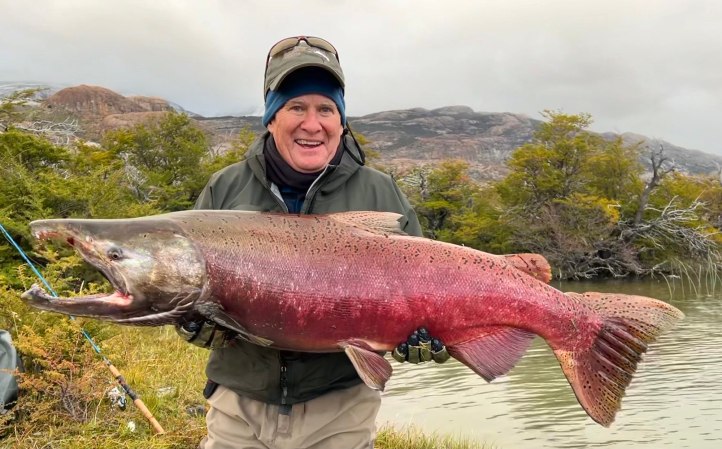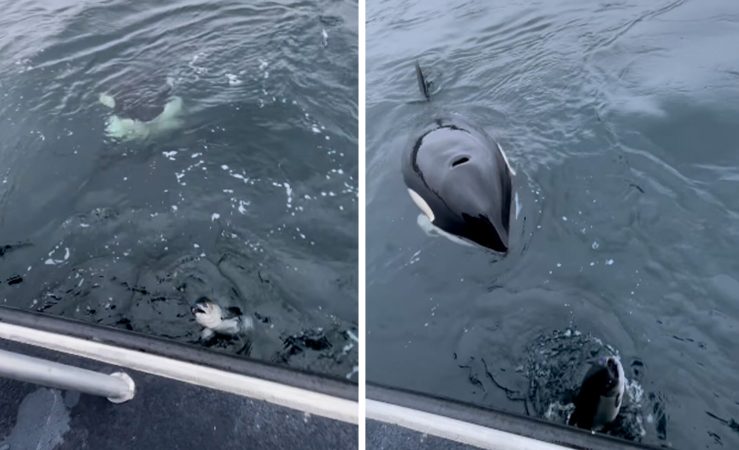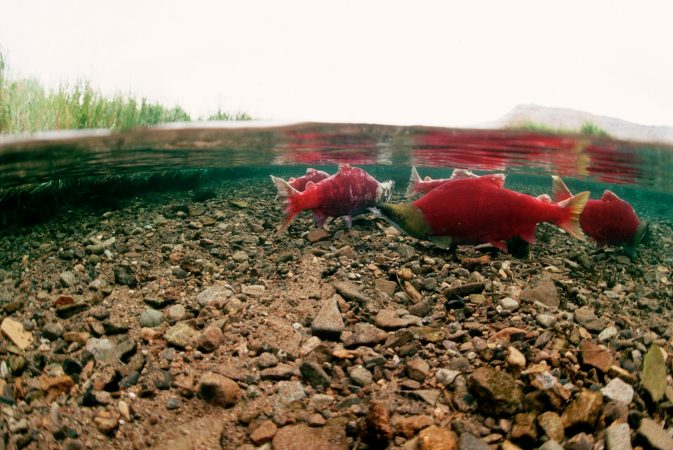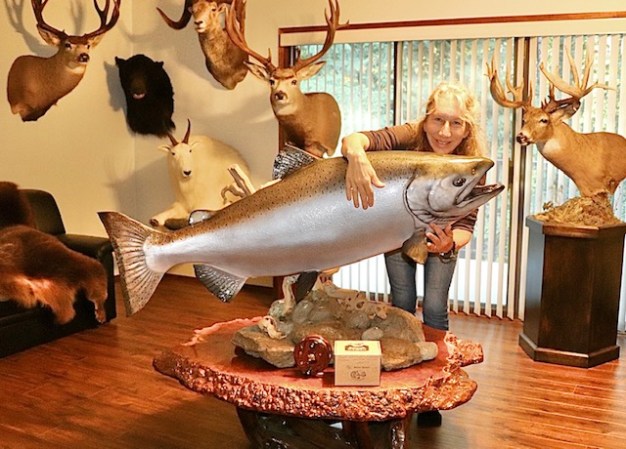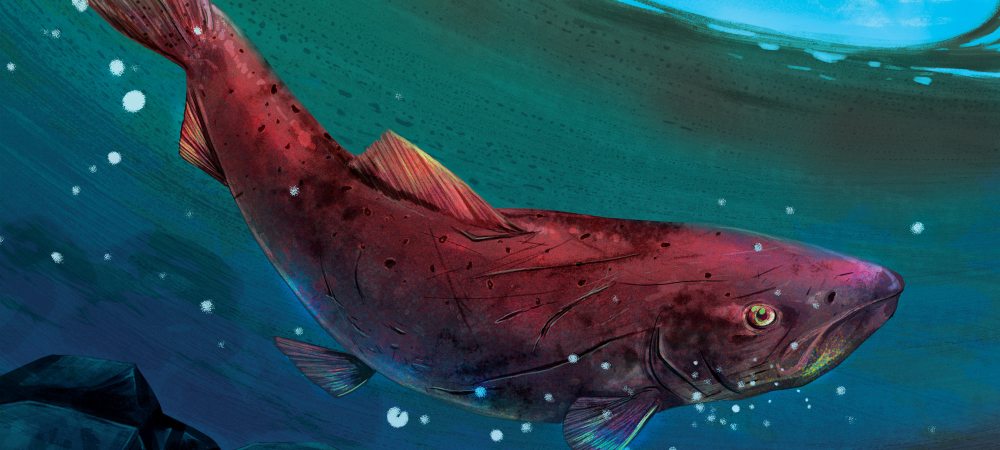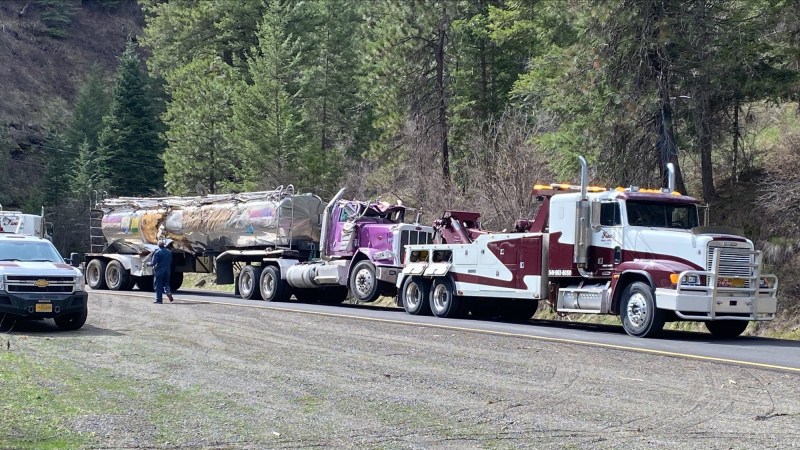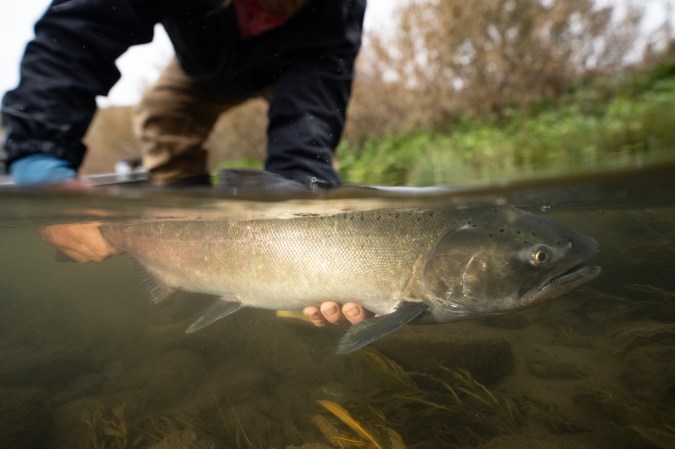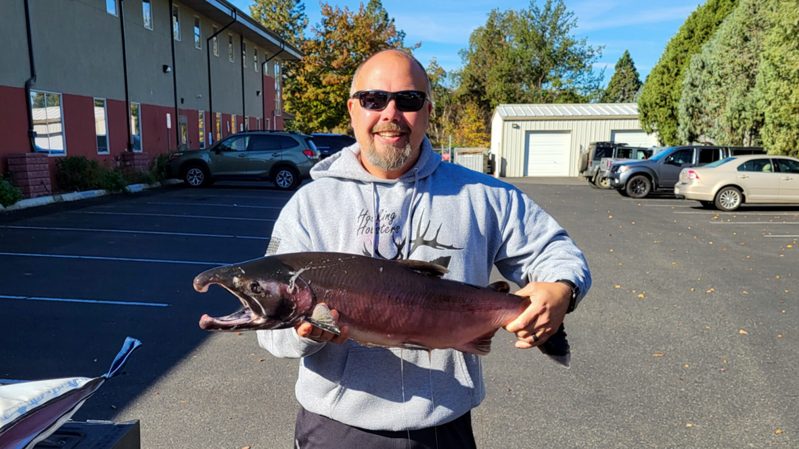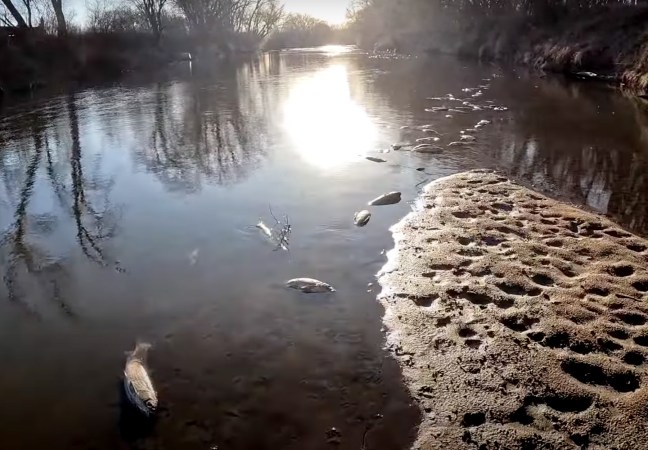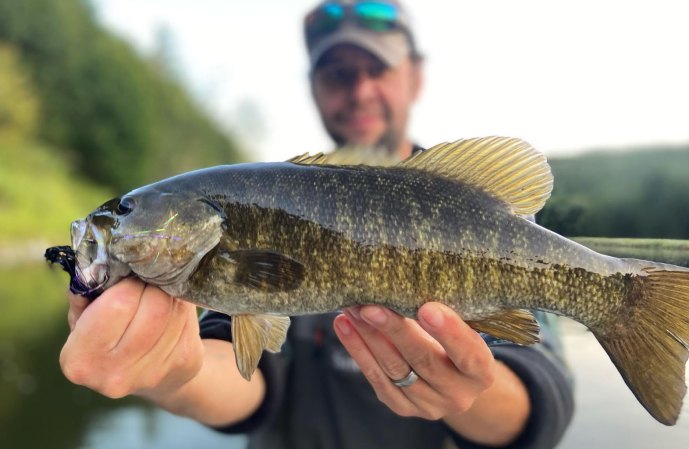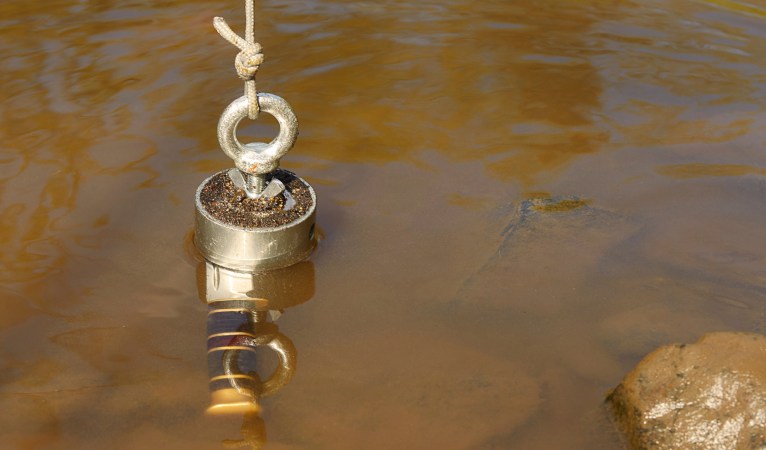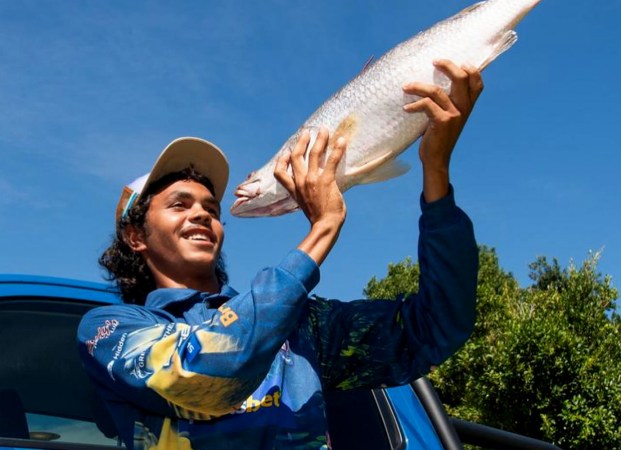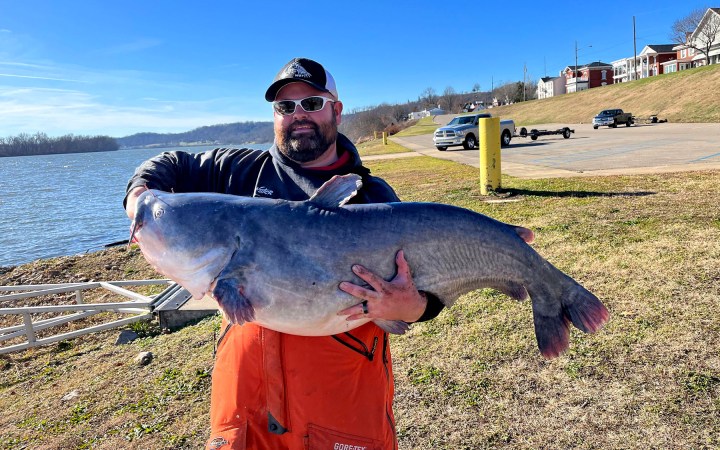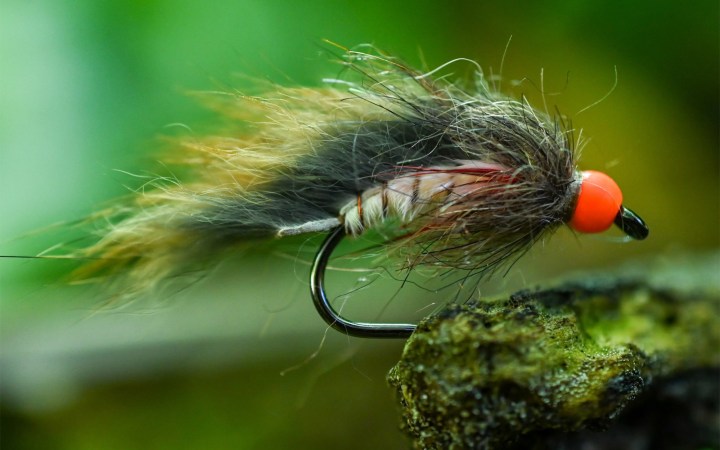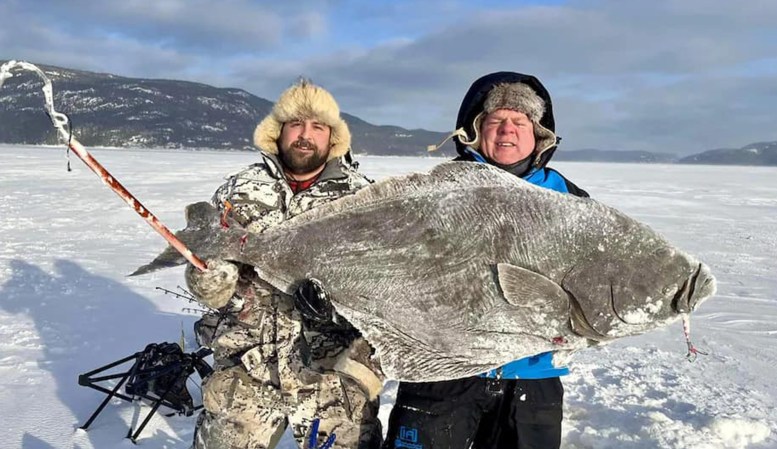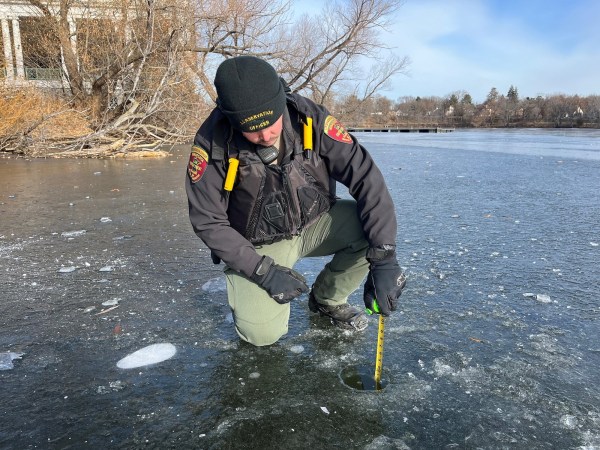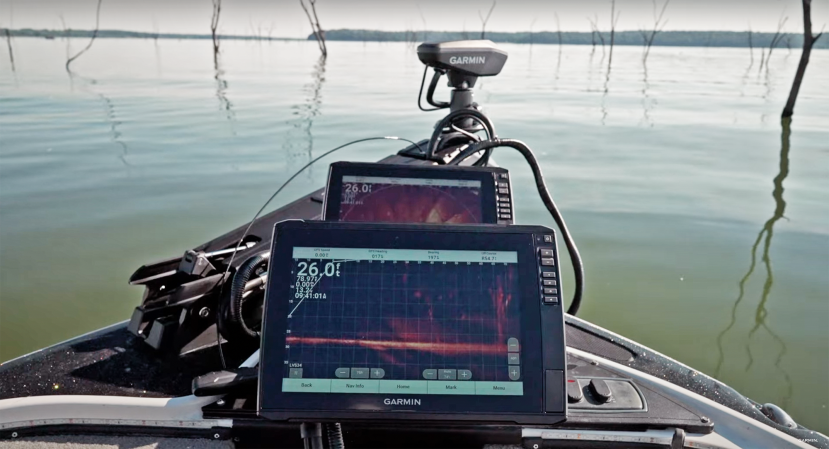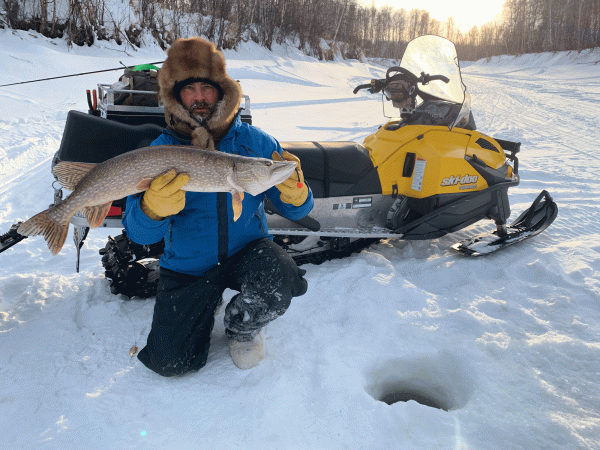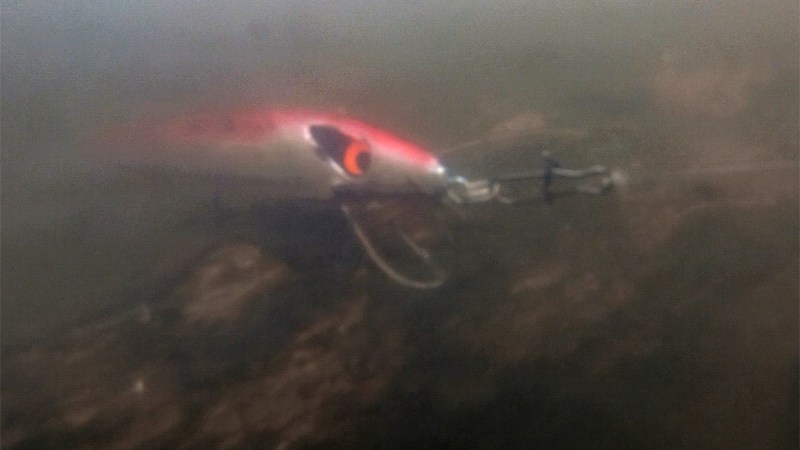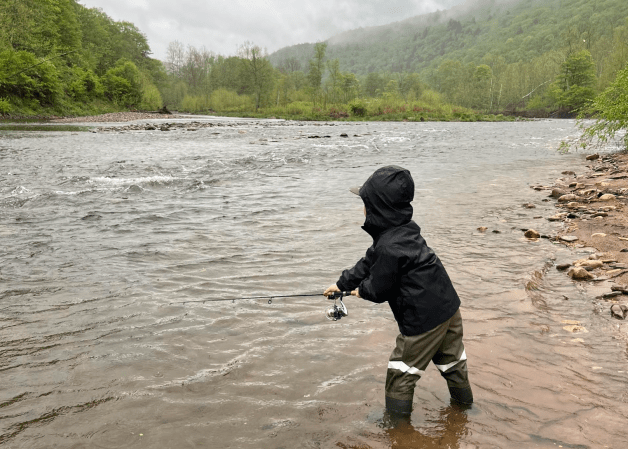There are no crystal balls when it comes to fishing records. But we have a pretty good hunch that the next world-record king salmon will come from a remote, glacial river system in the Argentine province of Santa Cruz. You don’t have to take our word for it, either. A recent video shared to Instagram shows the caliber of world-class fish that are consistently being caught from this faraway fishery.
The short clip that Tres Amigos Outfitters shared in early February shows angler Fabian Mengo releasing an “absolute beast” of a Chinook (also known as a king salmon) that he landed with local guide Tomas Biott. They caught the fish from Argentina’s Rio Caterina, a remote headwater stream that flows between two lakes inside Los Glaciares National Park. Most anglers access the river by booking a trip with Tres Amigos or another licensed outfitter at Estancia Cristina.
Located in an incredibly scenic and hard-to-reach corner of Patagonia, it’s truly a one-of-a-kind fishery. And thanks to videos like this one, it’s slowly gaining more attention from record-seeking salmon anglers around the world.
“I think this place is unique,” Biott told USA Today earlier this month. “Nature is so overwhelming and fish so big that only in dreams could it be this way. Glaciers, lakes, and kings up to [90 pounds]. Anytime, the world record is about to be broken.”
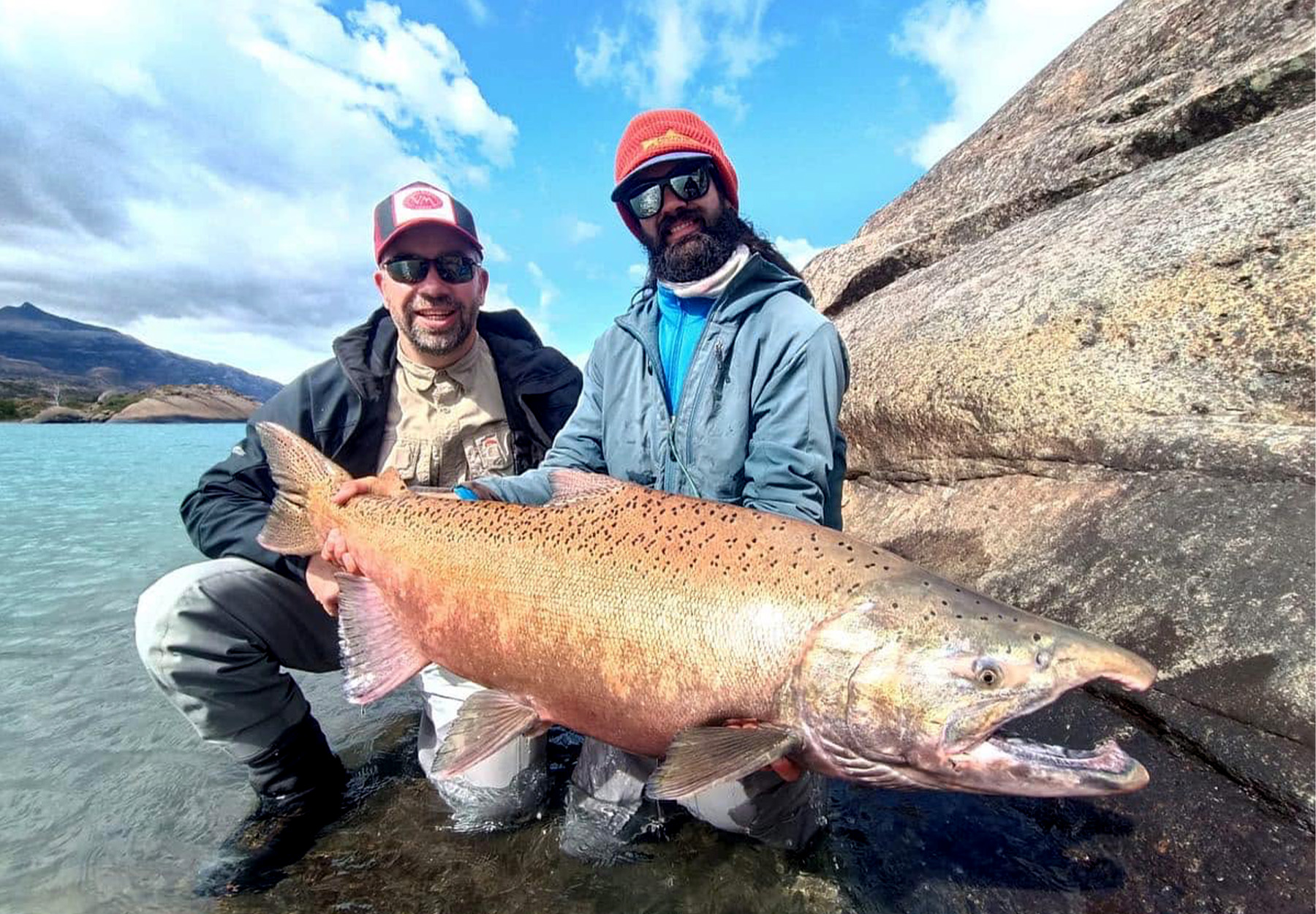
Photograph by Tres Amigos Outfitters
Biott was referring to the all-tackle world record king salmon, which weighed more than 97 pounds and was caught by angler Les Anderson on Alaska’s Kenai River, according to the International Game Fish Association. Anderson’s record has stood since 1985, and although bigger fish have reportedly been caught and released since then, it remains of the most coveted fishing records in the world.
The king salmon in Tres Amigos’ catch-and-release video wasn’t quite big enough to replace this record. And because the anglers released the fish without getting a certified weight measurement, it wouldn’t have qualified for the IGFA’s all-tackle category anyway. But it’s still one of the bigger Chinook we’ve seen in recent memory. The salmon measured roughly 46.5 inches in length with a 31.5-inch girth, and Biott estimated its weight around 66 pounds.
What’s even crazier is that Mengo’s Chinook isn’t the biggest to come from the Caterina in recent years. The outfitter’s Instagram page is full of giant king salmon that have been caught and released there, and Tres Amigos claims that the biggest Chinook they’ve landed was close to 90 pounds. That fish measured roughly 53 inches long with a 35-inch girth, according to a 2018 post (below). Plugging those numbers into the weight estimator formula that many salmon anglers use results in a total weight of roughly 87.7 pounds—or just 10 pounds shy of the current all-tackle world record.
“Just think that this Chinook arrived with maybe 10 percent or maybe 15 percent of weight more,” Tres Amigos wrote in the post, referring to the amount of weight most salmon lose during their journey upriver to spawn. “In this place there is a serious chance of catching the world-record king salmon anytime.”
Read Next: Angler Catches Pending World-Record Chinook Salmon in Argentina
The Santa Cruz watershed (which includes the Caterina River) is the only place in the world home to Atlantic-run Chinook salmon. The species is native to the North Pacific Ocean, but a self-sustaining population has flourished here after being introduced from U.S. waters. Fisheries biologists now believe that some of the Santa Cruz run could have also originated in Chile, which launched its own Chinook introduction program using fish stocks from the Columbia River Basin in the 1970s.

